Are you aware of the difference between subcontractors and employees? Both have different tax implications and will determine how your business prepares for its small business tax planning strategy. Keep reading to ensure you don’t find yourself in hot water with Canada Revenue Agency (CRA) and Labour Standards down the road!
This is the perfect time of year for business owners to begin thinking about small business tax planning strategies and how to set-themselves up for success in 2021. An important element that comes into the mix are subcontractors and employees.
We are living in a world where there are independent subcontractors readily available. Many employers are forgoing the traditional employer/employee relationship and leaning towards hiring subcontractors because it is favourable in terms of cost, time and commitment.
However, there are distinct differences between contractors and employees. Serious consequences can arrive at tax time if CRA discovers a subcontractor should be deemed an employee, as amounts owing to the government will change (CPP and EI premiums). The business becomes financially responsible for these, both ER and EE portions. Don’t forget the business will also be subject to filing penalties on each remittance period, plus interest. This can easily bankrupt a company. Not to mention, your business will be in violation with Provincial Labour Standards which can result in additional fines and penalties.
So, let’s dive in and see the distinction between the two and how it can affect your small busines tax planning strategy:
Subcontractor—
An independent subcontractor is an individual who is in business for themself. CRA will check to see that the independent contractor has the following:
- A GST number
- A PST number
- Their own office supplies and software
- Their own vehicle
- More than one client
- Are acting in business for themselves
- Errors and Omissions Insurance, Commercial Liability Insurance and Workers’ Compensation Board
- Assets — their own tools and equipment
- Contracts and/or Service Agreements
CRA looks at an individual as an independent subcontractor, if:
- The individual has the freedom to determine procedures, controls their working hours and other stipulations related to the job.
- The individual owns their own tools for the job.
- If the individual is getting paid a set amount at once that they determine, after the job is completed and is responsible for their operating costs.
- The individual has multiple clients.
Your small business tax planning strategy will take into consideration the estimate number of subcontractors hired in the tax year and approximate budget set aside for these subcontractors. Hiring subcontractors is straightforward at tax time, as a subcontractor accepts the responsibility of their business and associated costs and liabilities.
Employee—
Rule of thumb — if it acts like an employee, it is an employee. A contract between a business and an individual can never override the federal and/or provincial laws. An employee is someone who is hired by your business that is not in business for themself.
CRA looks at an individual as an employee if:
- The business has the ability and authority to direct the individual, establish procedures, work hours and conditions related to the job.
- The individual relies on using tools provided by the employer
- If the individual is getting paid the same amount on a repeating basis
- The individual’s sole client is the business
When hiring an employee, your small business has to take into account applicable payroll taxes, employment income and Canadian Pension Plan (CPP) contributions for your small business tax planning strategy. In addition, to your business being responsible to abide by federal and provincial labour standards legislation. This includes restrictions on work hours and mandatory holiday and overtime pay.
Hiring a Professional
Using an accountant for your small business tax planning strategy can greatly assist in the health of your business’s finances now and in the future. If you’re on the fence of whether you should stay a sole proprietor or incorporate, we recommend checking another one of our articles here.
Contact Us
For any questions you may have, please feel free to contact us by phone at (306) 530-9548 or by using our online contact form below.






